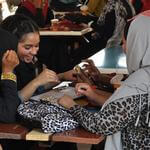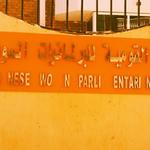Weak law forbidding female genital mutilation in Red Sea State, Sudan
How to cite this publication:
Samia al-Nagar, Liv Tønnessen, Sharifa Bamkar (2017). Weak law forbidding female genital mutilation in Red Sea State, Sudan. Bergen: Chr. Michelsen Institute (Sudan Working Paper SWP 2017:1)
This paper critically investigates the criminalization of female genital mutilation/cutting (FGM/C) in Red Sea, a state with one of the highest prevalence rates of FGM/C in Sudan (where 89% of females have undergone the procedure). Infibulation, also called “pharaonic circumcision” or “kushabi,” is the most severe type of FGM/C is widely practiced in Red Sea, especially among conservative tribal groups such as the Beja tribe and its subgroups Hadendawa and Beni Amer. These tribal groups played a key role in keeping criminalization of FGM/C out of the Red Sea State Child Act of 2007. Although the act was revised in 2011 to address FGM/C, it does so only weakly and does not clearly prohibit the most severe types of FGM/C. In essence, conservative political forces in Red Sea have been able to shape the legislative process.
Liv Tønnessen



![Corona überleben: Die Figur der:s Überlebende:n als Trägerin von Hoffnung und Angst in den Politiken einer Krise im Werden [Surviving Corona: The figure of the survivor as bearer of hope and fear in the politics of an emerging crisis]](http://www.cmi.no/img/400/18259-Corona-und-mediale-ffentlichkeiten.png)

